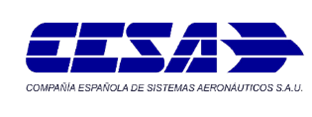In line with its strategy of developing systems and equipment for a more electrical aeroplane, the CESA-led consortium has been awarded a new project from the 7th Framework Programme – RESEARCH (REliability and Safety Enhanced Electrical Actuation System ARCHitectures). This is part of a call for international cooperation seeking to strengthen relations between the European Union and the Russian Federation in the field of aeronautical research.

The projects selected in this call aim to develop the technologies needed for more efficient and environmentally-friendly air transport, in accordance with the goals defined by ACARE (Advisory Council for Aeronautics Research in Europe).

Goals of the RESEARCH project
The study, analysis and definition of a more electrical architecture for flight controls, capable of handling the different control surfaces, as well as the feasibility study for their application in future medium and long-range aeroplanes.
CESA is currently leading other projects already under way within the JU CLEANSKY initiative of the 7th Framework Programme (ARMLIGhT and E-Rudder), which complement the new challenge posed to CESA by the RESEARCH project.
RESEARCH Consortium Structure
In this consortium, headed by CESA, participating on the European side are the Spanish technological centre TECNALIA, the renowned French aerospace research centre ONERA and the Italian company UMBRA. On the Russian side are two first-rate Russian technological centres (TsAGI and the University of Moscow) and the company UAC (United Aircraft Corporation), the biggest Russian aeronautics corporation.

Project Structure
CESA will not only lead and strategically coordinate the consortium, it will also participate alongside UAC in the activities relating to the definition of the requirements, the analysis of the architecture itself and the development of technologies, as well as the validation of the concepts and future feasibility studies.
The project has been set to be carried out over a period of 30 months, during which time all of the work packets regarding technical content, management issues, strategic coordination and the monitoring of the consortium and its goals will be addressed and a great deal of work will be done to disseminate and utilise the results.

